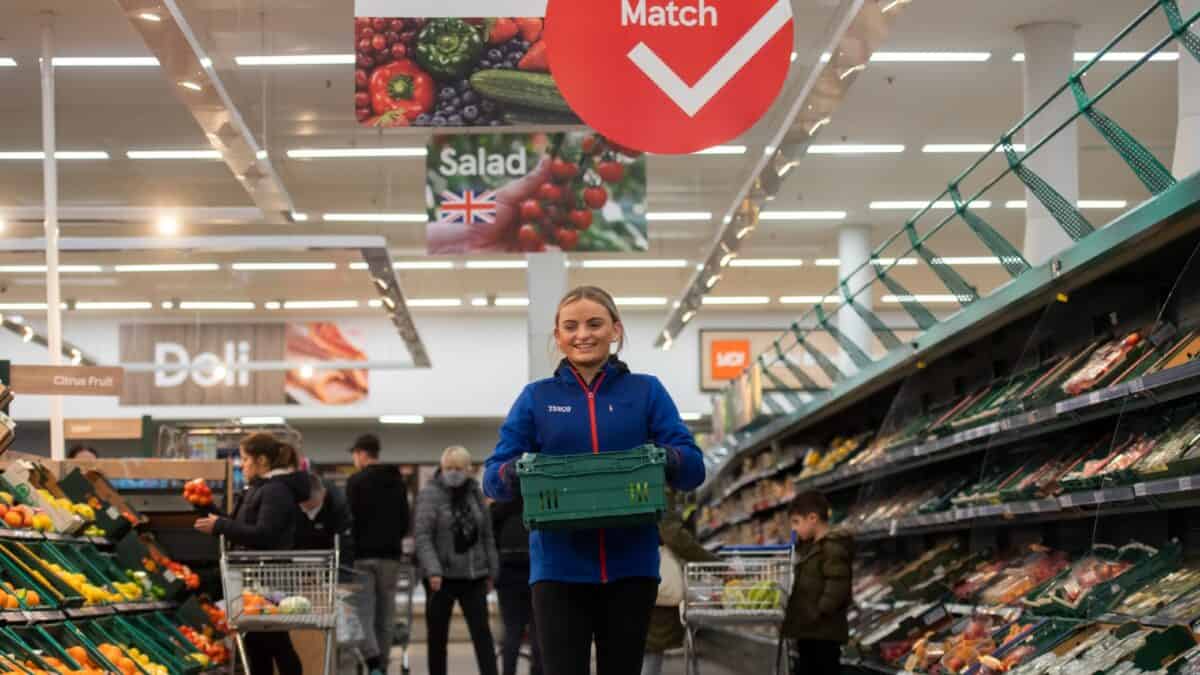The Tesco (LSE: TSCO) share price got a boost on Thursday (3 October), after the supermarket giant posted a 15.6% rise in first-half operating profit. The shares jumped 2.4% in early trading.
CEO Ken Murphy told us “we are as competitive as we have ever been, and we have been the cheapest full-line grocer for nearly two years.“
About a decade ago, I feared the encroachment of Lidl and Aldi on the UK retail scene could eat into Tesco’s business.
But things have barely budged since this time in 2014. According to Kantar Worldpanel, Tesco had 29% of the UK’s grocery market share back then. This month it’s at 28%.
The two interlopers have doubled their share in the same period. But it seems to be at the expense of others, with Asda and J Sainsbury losing the most.
First-half profits
That 15.6% profit rise is on adjusted basis. But on statutory measures, we’re still looking at a 13% increase. It came from a 3.5% gain in sales (excluding VAT and fuel). We saw a 4.7% operating margin, up 52 basis points.
At the bottom line, adjusted earnings per share (EPS) soared 23.7%. The 19.3% boost to the statutory figure wasn’t far behind.
The interim dividend is lifted 10.4% to 4.25p per share. Forecasts suggest a 3.4% yield for the full year. But there must be a chance of an upgrade now, after this half beat expectations.
Tesco lifted its full-year outlook, saying that “we now expect to deliver around £2.9bn retail adjusted operating profit for the 2024/25 financial year (previously ‘at least £2.8bn’).“
On the Tesco Bank front, the board expects “an adjusted operating profit contribution of between £80m to £100m per year, including strategic partnership income from Barclays.”
Should I dive in?
The Tesco share price is up 25% so far in 2024, with much of that in the past few months. I can’t help thinking it shows a flight to safety by UK investors.
That can happen in tough times. And the horrifying escalations in world conflicts have the potential to put us in one of the worst.
When thinking about buying now though, I wonder if Tesco shares might be fully valued.
Forecasts give us a price-to-earnings (P/E) ratio of 14, which is around the FTSE 100 average. And the expected dividend yield is close to average too.
And that’s largely where I’d expect a supermarket stock to trade in the long term.
Not the time?
The ideal time to buy safe, defensive, stocks surely isn’t when the bad things are happening. No, it’s maybe something we should do during better times, to be prepared.
Saying that, it’s generally a mistake trying to time the market. And my strategy over the decades has been to put some of my investment cash into safety stocks, no matter what the current world outlook is like.
I never bought Tesco, though. Maybe I should.
Then again, what if Aldi and Lidl ever set up their own home delivery services?
Credit: Source link














